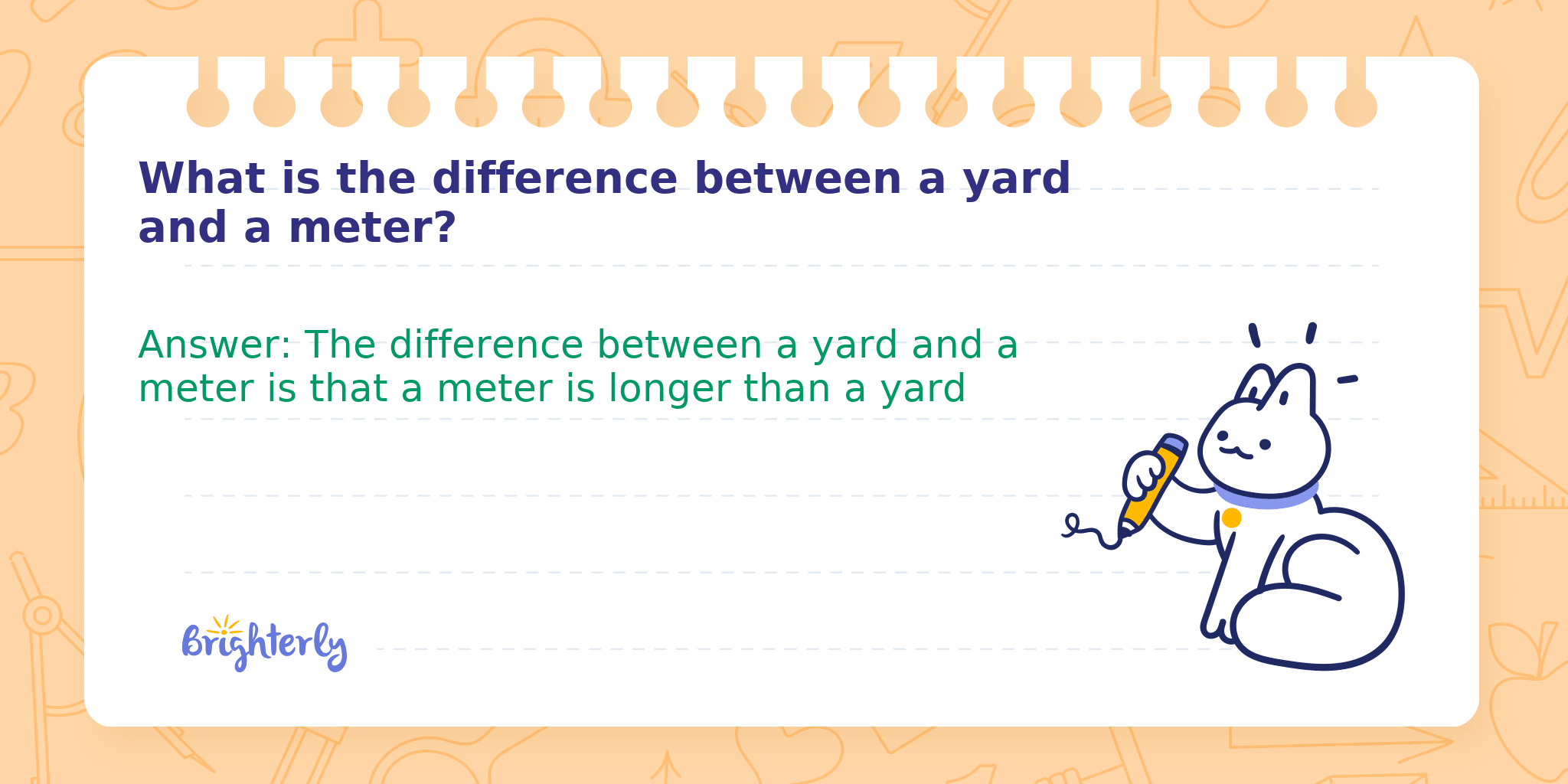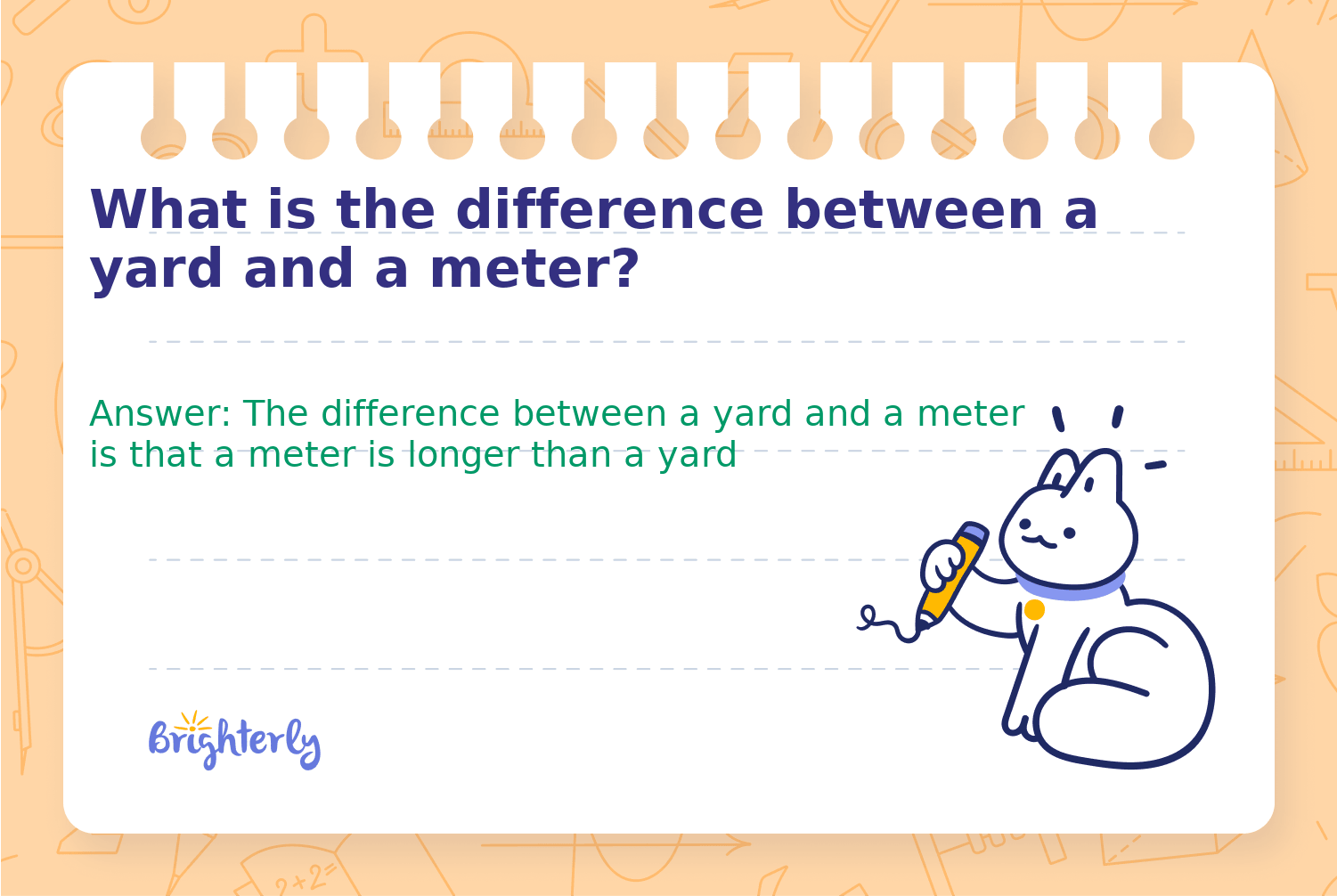
Reviewed by Janice S. Armas
What is the difference between a yard and a meter?
Answer: The difference between a yard and a meter is that a meter is longer than a yard
Yards and meters are both units used to measure length, but they belong to different measurement systems. While a yard is commonly used in the United States and is part of the imperial system, a meter is used internationally as part of the metric system. Understanding their differences helps when converting measurements between systems or comparing lengths globally.
Methods
Math Tutor Explanation Using Unit Conversion
This method compares the actual length measurements for a yard and a meter by converting one to the units of the other.
Step 1: Step 1: Know that 1 yard equals 0.9144 meters
Step 2: Step 2: Alternatively, know that 1 meter equals about 1.0936 yards
Math Tutor Explanation Using Comparison in Everyday Context
This method helps conceptualize the difference between a yard and a meter by relating it to common objects or scenarios.
Step 1: Step 1: Note that a yard is approximately the length of a standard baseball bat or three feet
Step 2: Step 2: A meter is slightly longer than a yard, roughly the height of a guitar or just over three feet
Step 1:
Step 2:
Math Tutor suggests: Discover More About Units of Measurement
Explore more exercises on comparing and converting different units of measurement to deepen your understanding.
FAQ on Yard and Meter Differences
Which is longer, a yard or a meter?
A meter is longer than a yard.
How much longer is a meter than a yard?
A meter is about 0.0856 meters, or 8.56 centimeters, longer than a yard.
Are yards and meters interchangeable?
They are not exactly interchangeable but can be converted between each other.
Where are yards used more commonly than meters?
Yards are commonly used in the United States and some other countries that use the imperial system.
What is the exact conversion factor between yards and meters?
1 yard equals exactly 0.9144 meters.


